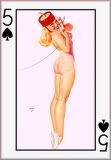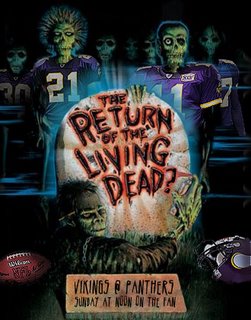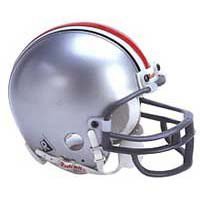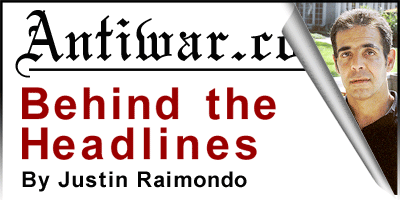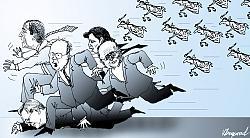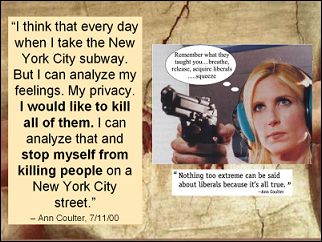found this at
crooks and liars A Message from Bill Keller:
Colleagues,
As you can imagine, I've done a lot of thinking -- and a lot of listening -- on the subject of what I should have done differently in handling our reporter's entanglement in the White House leak investigation. Jill and John and I have talked a great deal among ourselves and with many of you, and while this is a discussion that will continue, we thought it would be worth taking a first cut at the lessons we have learned.
Aside from a number of occasions when I wish I had chosen my words more carefully, we've come up with a few points at which we wish we had made different decisions. These are instances, when viewed with the clarity of hindsight, where the mistakes carry lessons beyond the peculiar circumstances of this case.
I wish we had dealt with the controversy over our coverage of WMD as soon as I became executive editor. At the time, we thought we had compelling reasons for kicking the issue down the road. The paper had just been through a major trauma, the Jayson Blair episode, and needed to regain its equilibrium. It felt somehow unsavory to begin a tenure by attacking our predecessors. I was trying to get my arms around a huge new job, appoint my team, get the paper fully back to normal, and I feared the WMD issue could become a crippling distraction.
So it was a year before we got around to really dealing with the controversy. At that point, we published a long editors' note acknowledging the prewar journalistic lapses, and -- to my mind, at least as important - - we intensified aggressive reporting aimed at exposing the way bad or manipulated intelligence had fed the drive to war. (I'm thinking of our excellent investigation of those infamous aluminum tubes, the report on how the Iraqi National Congress recruited exiles to promote Saddam's WMD threat, our close look at the military's war-planning intelligence! , and th e dissection, one year later, of Colin Powell's U.N. case for the war, among other examples. The fact is sometimes overlooked that a lot of the best reporting on how this intel fiasco came about appeared in the NYT.)
By waiting a year to own up to our mistakes, we allowed the anger inside and outside the paper to fester. Worse, we fear, we fostered an impression that The Times put a higher premium on protecting its reporters than on coming clean with its readers. If we had lanced the WMD boil earlier, we might have damped any suspicion that THIS time, the paper was putting the defense of a reporter above the duty to its readers.
I wish that when I learned Judy Miller had been subpoenaed as a witness in the leak investigation, I had sat her down for a thorough debriefing, and followed up with some reporting of my own. It is a natural and proper instinct to defend reporters when the government seeks to interfere in our work. And under other circumstances it might have been fine to entrust the details -- the substance of the confidential interviews, the notes -- to lawyers who would be handling the case. But in this case I missed what should have been significant alarm bells. Until Fitzgerald came after her, I didn't know that Judy had been one of the reporters on the receiving end of the anti-Wilson whisper campaign. I should have wondered why I was learning this from the special counsel, a year after the fact. (In November of 2003 Phil Taubman tried to ascertain whether any of our correspondents had been offered similar leaks. As we reported last Sunday, Judy seems to have misled Phil Taubman about the extent of her involvement.) This alone should have been enough to make me probe deeper.
In the end, I'm pretty sure I would have concluded that we had to fight this case in court. For one thing, we were facing an insidious new menace in these blanket waivers, ostensibly voluntary, that Administration officials had been compelled to sign.! But if I had known the details of Judy's entanglement with Libby, I'd have been more careful in how the paper articulated its defense, and perhaps more willing than I had been to support efforts aimed at exploring compromises.
Dick Stevenson has expressed the larger lesson here in an e-mail that strikes me as just right: "I think there is, or should be, a contract between the paper and its reporters. The contract holds that the paper will go to the mat to back them up institutionally -- but only to the degree that the reporter has lived up to his or her end of the bargain, specifically to have conducted him or herself in a way consistent with our legal, ethical and journalistic standards, to have been open and candid with the paper about sources, mistakes, conflicts and the like, and generally to deserve having the reputations of all of us put behind him or her. In that way, everybody knows going into a battle exactly what the situation is, what we're fighting for, the degree to which the facts might counsel compromise or not, and the degree to which our collective credibility should be put on the line."
I've heard similar sentiments from a number of reporters in the aftermath of this case.
There is another important issue surfaced by this case: how we deal with the inherent conflict of writing about ourselves. This paper (and, indeed, this business) has had way too much experience of that over the past few years. Almost everyone we've heard from on the staff appreciates that once we had agreed as an institution to defend Judy's source, it would have been wrong to expose her source in the paper. Even if our reporters had learned that information through their own enterprise, our publication of it would have been seen by many readers as authoritative -- as outing Judy's source in a backhanded way. Yet it is excruciating to withhold information of value to our readers, especially when rival publications are unconstrained. I don't yet see a clear-cut ! answer t o this dilemma, but we've received some thoughtful suggestions from the staff, and it's one of the problems that we'll be wrestling with in the coming weeks.
Best, Bill


